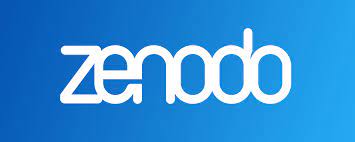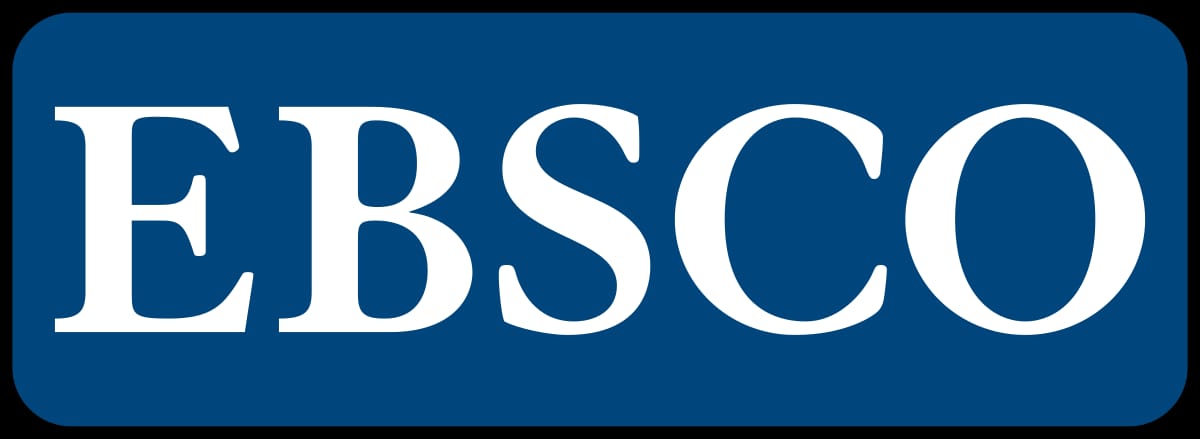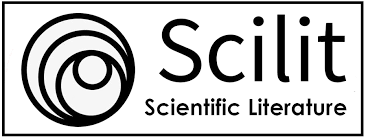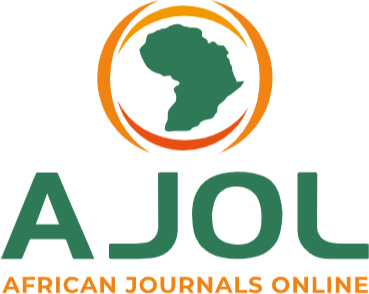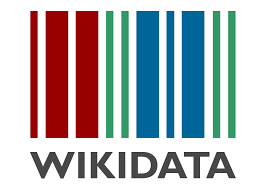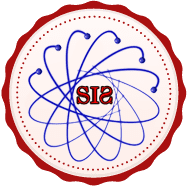About the Journal
General information
Academicus is a Multidisciplinary Journal aimed at researchers and students, committed to sharing and disseminating knowledge by encouraging scientific production in all areas of knowledge (among the main thematic areas include: Social Sciences, Humanities, Engineering, Medicine and Health, Accounting and Management, Psychology, Education, History, Biology, Anthropology, Economics, Philosophy, Finance and others ).
Academicus is an open access journal, published twice a year. It publishes articles, book reviews, communications and interviews.
Manuscripts submitted to this journal must be sent in any of the languages ( Portuguese , English or Spanish ), with the respective abstracts.
Editorial and peer review process
In this process, Academicus Magazine uses a Double-Blind peer review. Each manuscript is initially evaluated by two of the editorial board editors and, if relevant to the journal, is submitted to two or three external reviewers for double-blind peer review. The peer review procedure must be completed within an average of 60 days and reviewers are selected according to their accumulated experience in their field of training.
The selection of reviewers is at the discretion of the Editor-in- Chief . Reviewers should have expertise in the subject area of the manuscript; they should not be from the authors' own institution; and they should not have recent joint publications with any of the authors.
Taking into account the reviewers' recommendations, the editors decide whether the manuscript should be accepted as is, revised, or rejected. In case of requested revisions, the final decision on publication will be made after resubmission. If there is no agreement by the editors, the editor-in-chief will make the final decision.
Anti-plagiarism policy
Academicus Magazine does not tolerate the practice of plagiarism or self-plagiarism . Manuscripts submitted to this Journal will be checked before any evaluation by any reviewer.
As part of the submission process, the journal informs that all manuscripts are carefully checked using the Plagius and AntiPlagiarism.NET software , and if there is a major indication of plagiarism, the manuscript is immediately rejected, but the one with the lowest plagiarism index will be returned to its author for due revisions.
If plagiarism is discovered in an article already published by the journal, it will be retracted in accordance with the procedure described below in Retraction Policy.
Policy on integrity and ethics in research and publication
Academicus Magazine declares its commitment to the principles of ethics and integrity in scientific research and publishing, throughout its process of evaluation, peer review and publication of articles by all those involved in the editorial process: editors, reviewers and authors, in accordance with the Good Practice Guidelines of the Committee on Publication Ethics (COPE) .
In these terms, we reiterate our commitment to ethics and integrity of research, as guided by: Good practices guide for strengthening ethics in scientific publishing of the SciELO Program and the Guidance for Editors : research, audit and service evaluations (COPE).
This journal continually strives to ensure the veracity and accuracy of submitted manuscripts and published articles. Therefore, it requires all those involved in the editorial process (editors, reviewers and authors) to be more committed to scientific confidentiality, impartiality, transparency, objectivity , authorship and truthful sources of information.
Conflict of interest
Academicus Journal requires that all those involved in the editorial process (authors, reviewers and editors) promptly declare any conflicts of interest, which is why authors, reviewers and editors must disclose in their manuscripts any financial, personal, economic, political or other substantive conflict of interest that may have influenced the results presented or their interpretation. If there is no conflict of interest to declare, the following standard statement should be added: “No conflict of interest has been disclosed”.
Funding information: If an article is a result of the funded project, authors must specify the sources of funding according to their contracts with the funder.
Policy on retraction or errata in published works
A retraction may be used to correct errors in submission or publication, unethical research , or any serious misconduct. Considering the COPE guidelines to prevent scientific misconduct, the Journal is open to publishing corrections , clarifications, and retractions whenever the following errors are found:
- Violation of the legal limitations of the publisher or copyright holder or author( s );
- Violation of professional codes of ethics and research misconduct, such as multiple submissions, duplicate or overlapping publication, false claims of authorship, plagiarism, fraudulent use of data and data fabrication, undisclosed use of tools based on large language models and generative AI, errors due to sample mixing, use of a scientific tool or equipment that is later found to be defective.
If the author identifies any error or significant inaccuracy in his/her article, already published, he/she is obliged to immediately notify the journal editor and cooperate to withdraw or correct the document.
By submitting a manuscript, authors agree to abide by Academicus Magazine Policies.
Complaints and conflict resolution
Academicus Magazine understands that anyone may inform the editors and/or editorial staff at any time about suspected unethical behavior or any type of misconduct, regarding any of the articles.
The complaint must contain information or evidence necessary for the appropriate procedures to be adopted . In this regard, the Editor -in-Chief will consult the editorial board on decisions regarding the initiation of an investigation.
During the investigation, any evidence must be treated as strictly confidential and made available only to those strictly involved in the investigation. The accused will always have the opportunity to respond to any charges made against him.
unethical behavior or any type of misconduct, it will be classified as minor or major, and the right of reply will be given to the person who sent the complaint, for this process.
When handling complaints and resolving conflicts, the editorial team will rely on the guidelines and recommendations provided by the Committee on Publication Ethics (COPE) .
Informed consent for human research
Whenever research involves human subjects, human data should not be shared in accordance with the Declaration of Helsinki , to protect the privacy of participants, unless individuals have given explicit written consent for their identifiable data to be made publicly available.
In the case of research involving human subjects, informed consent to participate in the study must be obtained from the participants (or their legal guardians).
Open Access Policy
Academicus Journal adopts an Open Access Policy, making all its content available free of charge and immediately to the public. By publishing in this journal, authors agree to the unrestricted dissemination of their articles, ensuring accessibility and sharing of scientific knowledge, without financial, technological or legal barriers.
This means that users can read, download, copy, distribute, print, search the full text of articles, as well as establish HTML links to them, in accordance with the Creative Commons license. Attribution 4.0 International (CC BY-NC-ND 4.0) , adopted.
You have the right to share, copy and redistribute the material in any medium or format. The person or entity with the authority to grant licenses cannot revoke these rights as long as you comply with the terms of the license. According to the following terms:
- Attribution — You must give appropriate credit, provide a link to the license, and indicate if changes were made. You may do so in any reasonable way, but not in a way that suggests that the person or entity with the authority to grant the license endorses or approves of your use.
- Non-Commercial — You may not use the material for commercial purposes.
- No Derivatives — If you remix, transform, or build upon the material, you may not distribute the modified material.
- No additional restrictions — you may not apply legal terms or technological measures that legally restrict others from doing anything the license permits.
Academicus Magazine does not charge any fees for the submission, review and production stages.
Self-Archiving Policy
Authors may deposit preprints, author-accepted manuscripts, and/or versions of record in an institutional, disciplinary, or general-purpose repository prior to or during the submission process, at any time after manuscript acceptance, and at any time after publication.
Academicus Magazine digitally preserves the articles it publishes. The issues are deposited in full and in open access in the institutional repository of African Journals Online (AJOL) .
Copyright and licensing
Authors retain copyright of published articles and grant the publisher the non-exclusive right to publish the article, to be cited as its original publisher in case of reuse, and to distribute it in all forms and media . Articles will be distributed under the Creative Commons license Attribution 4.0 International (CC BY-NC-ND 4.0).
ORCID
Academicus requires all authors submitting an article to have an Open Researcher account and Taxpayer ID ( ORCID ). The ORCID numbers of all authors and co-authors must be added to the author data at the time of manuscript submission. The ORCID record provides a unique and persistent digital identifier for the account that enables accurate attribution and improves the discoverability of published articles by ensuring that the correct author receives the correct credit for their work.
Metadata Policy
The journal's metadata is freely accessible to all and can be freely reused by anyone under the terms of Creative Commons . Universal Public Domain Dedication License (CC0 1.0) .
Disclaimer
The opinions expressed in the published works do not express the opinions of the Editors and Editorial Team. Authors assume legal and moral responsibility for the ideas expressed in the articles. The Editor- in-Chief , Editors and Editorial Staff shall have no liability in the event of any claims for damages being made. The Editor- in-Chief , Editors and Editorial Team shall not be held legally liable if there are any claims for compensation.







